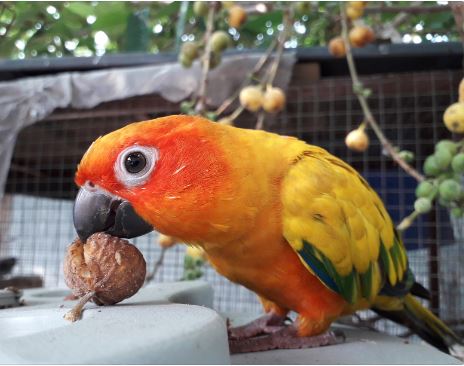Parrots Healthy Food – Healthy Diet for Parrots
The Best Diet for Your Parrots: The Essential Guide
When it comes to taking care of your pet parrot, a good diet is one of the keys to success. Parrots are smart and active birds that can only be happy if they are in good health. There are plenty of ways to make your bird’s feathers, energy and general health all better with the right type of food. So what exactly should a parrot eat? Let’s begin with the basics of parrot nutrition.
Why a Balanced Diet is Necessary for Parrots
It is a well known fact that parrots can survive without issues as they are omnivores. In the wild, a wide variety of food is readily available to them including fruits, seeds, nuts, flowers, insects and more. However this does not mean that pet parrots should be overfed or underfed. Instead their diets should still contain all the vitamins, minerals and nutrients like the ones found in their natural environment. Failure to provide a balanced diet to a pet parrot becomes deadly as there are a lot of issues that can arise from it including vitiligo and obesity.
What Foods are Considered Healthy in Parrots?
- Fresh Fruits:Fresh fruits can be considered as one of the primary sources of vitamins and antioxidants. For example, good combinations for feeding parrots healthy fruits are:
- Apples (without seeds)
- Berries (blue, red and black)
- Papaya
- Mango
- Bananas
While many fruits are healthy and most animals, ourselves included, enjoy them, it is important to not forget that everything should be done in moderation.
Tip: Fruits should be washed and scrubbed properly to remove pesticides and also steer clear from tinned fruits in syrup.
- Vegetables:Vegetables can be described as a nuclear bomb in terms of how healthy they are.
Some excellent choices for parrots are:
- Leafy greens(Spinach, kale, and collard greens)
- Carrots
- Bell peppers
- Sweet Potatoes
- Broccoli
To maintain the highest level of nutrition, serve vegetables raw or lightly steam them.
- Nuts and Seeds
These sources are also helpful in providing proteins and fats, which are healthy. Most parrots enjoy:
- Almonds
- Walnuts
- Sunflower seeds(Moderation)
- Flax seed
Note: Make sure that parrots do not take salted nuts as too much sodium can be harmful on parrots.
- Grains and Legumes Grain seed with husk and cooked legumes or beans are excellent sources of energy and fiber. Try:
- Quinoa
- Brown rice
- Lentils
- Chickpeas
- Pellets Good quality commercial pellets are formulated to provide balanced nutrition in one diet. Use brands without artificial additives or sugar in excess. Approximately 50% of parrot’s diet should be made up by pellets.
Foods to Avoid
When it comes to food offered to parrots, certain foods can be poisonous and should be avoided at all cost:
- Avocado
- Chocolate
- Caffeine
- Onion and garlic
- Alcohol
Also, avoid fatty treats and restrict the feeding of thrust parrots such as junk food.
Tips for Feeding your Parrot
- Use a Range of Foods: Allowing rotating diets so that the parrot is able to get a wide range of nutrients.
- Fresh Water Clean water should be provided at all times.
- Do Not Over Feed It is very important to monitor feeding portion as over feeding can lead to unhealthy parrots.
- Be Patient About New Foods: When introducing new elements in their diet, parrots can be quite choosy hence this process requires time and patience.
Conclusion
Among the most important aspects of caring for a parrot, feeding is the one that has significant impact: the right, varied and well-balanced diet leads to a healthy and active bird. Make sure to stock fresh fruits, vegetables, grains and nuts for your bird and keep it looking bright and healthy. Remember, before the parrot can fly the coop, it has to digest well some nutritious food.
If you are interested in similar issues and would like to learn more about parrot care, please continue reading our blogs so that you will be able to properly support your pet.
Make dietary changes to your parrot so that it leads a longer and healthier life!
